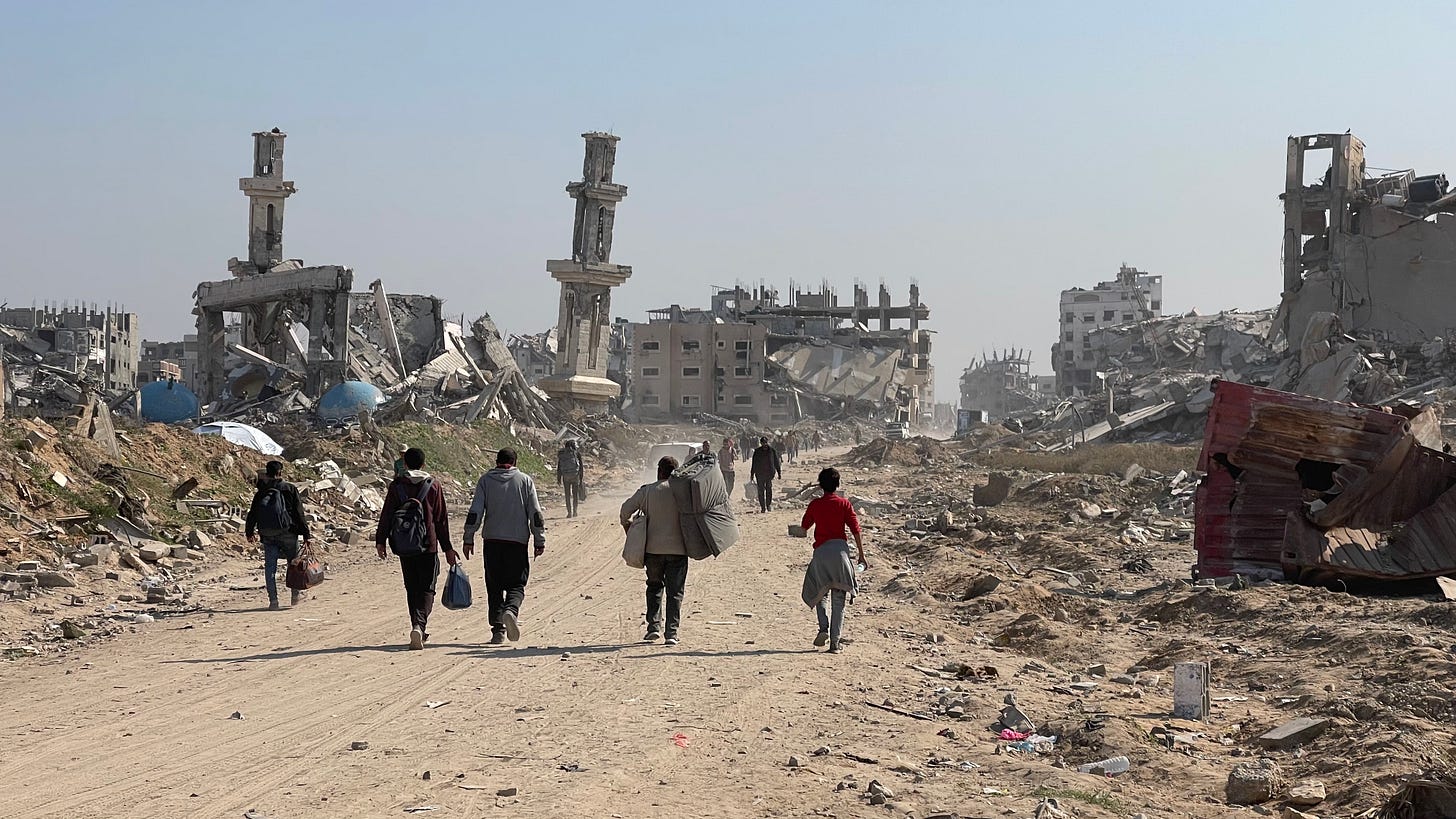Gaza fighting intensifies as post-war governance ideas surface—some explosive
In Gaza, tactics are outrunning strategy. Without a credible governance plan, every battlefield gain risks collapsing into another cycle of ruin.
The war’s center of gravity has swung back to Gaza City, with renewed Israeli operations amid pulverized neighborhoods and mass displacement. Humanitarian indicators are dire. A prominent European-led activist flotilla has set sail from Barcelona aiming to breach the blockade, while Arab partners emphasize aid corridors but still lack a shared end-state. Into this vacuum arrived a provocative trial balloon: reporting that U.S. officials are reviewing a plan envisaging years of American administration over Gaza—an idea freighted with legal hurdles, domestic skepticism, and the memory of nation-building’s costs.
Image: Jaber Jehad Badwan / CC BY-SA 4.0
Israel’s strategic problem remains unsolved: eliminate Hamas’s military capacity without inheriting the ashes. Arab states will not underwrite stabilization without a credible political horizon; Israel will not accept governance that restores the threat; Washington has finite bandwidth—and legitimacy is not an air-bridge commodity. Meanwhile, the war’s tactics—targeting networks, tunnel warfare, hostage diplomacy—risk outrunning strategy.
This is a moment for ruthless clarity: a security architecture that separates civilians from combatants; a technocratic interim administration with broad Arab buy-in; and a parallel track on Palestinian political reform. Anything less is a recipe for cyclical ruin.
Our Take: Security first, yes—but tied to a time-bound, internationally backed governance plan, or the vacuum will govern instead.

